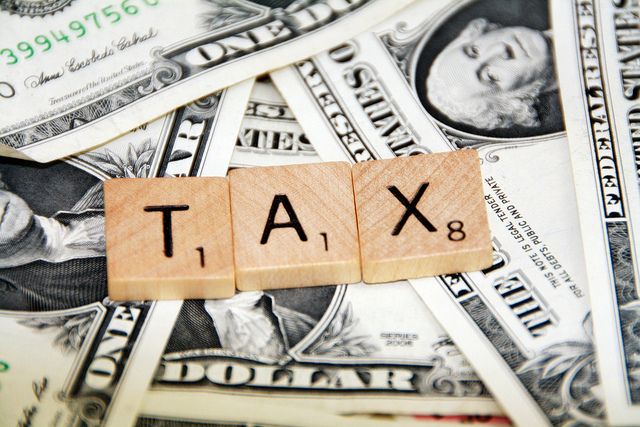This is a Building Blocs piece in which, Sam Ryan from SAYSO talks tax for writers.

I’m a writer! I wrote some things! I’m getting paid for them! Now what?
Well first, I’m going to assume you’ve already registered for an ABN and decided whether or not as a sole trader, you’ll register for GST.
Okay, well I think I’ve done those things, but how do I invoice? And where should I keep it?
You can use a Word or Excel template to invoice for your work, but these really aren’t ideal for keeping records. Regardless of how you invoice, you need to include the following info courtesy of our mates at the ATO:
-
That the document is a Tax Invoice (yes, you need to put those words on there)
-
Your identity (name or trading name, address etc)
-
Your ABN (this is vital, don’t forget this little sucker)
-
The date the invoice was issued.
-
A brief description of contents of sale (eg “copywriting for 2015 advertising campaign”)
-
The GST amount payable, if any. You can note the actual GST amount OR a statement such as “Total price includes GST”.
-
If you aren’t registered for GST then note that too by simply writing “not registered for GST” somewhere on the invoice. You don’t have to put why you’re not registered. You don’t need to write a small essay detailing how you’re under the threshold. And yes, I’ve seen this done before. And no, I still don’t know why.
(For more detailed info, go directly to their site – don’t be scared, they rarely bite.)
Make sure you also list your terms (eg 7 days, 14 days, EOM) and your bank details. You’d be surprised at how many people completely forget to include bank details, and then wonder why they haven’t been paid quickly. Also include an email and phone number on the invoice. Large organisations have entirely separate departments for accounts, so sending info separately to your particular contact doesn’t necessarily mean it will make it to the finance department.
If you are invoicing on Word or Excel, then keep a copy – pdf is preferable - on file for future reference. Start a list or spreadsheet to track what you’ve sent and what you’ve been paid for. Otherwise there is some damn fine software out there right now that’s incredibly easy to use and will help you get organised. Try Xero, Zoho, or MYOB for starters. It’s worth the extra cost each month for one of these packages, as you can track who has paid and who you need to chase for payment. This will also keep your accounting professional much happier and they will probably give you a gold star*.
These days everything is cloud based, so you can even invoice from your phone, which, let’s face it, is WAY better and more rewarding than Flappy Bird.
*May not actually be true. I will give you a gold star though, so there’s that.
Someone gave me a tax receipt. I’m terrified. What should I do with it? SHOULD I BURN IT?
Okay please God don’t do that. I have a rule that I keep every receipt just in case I need it at a later date. File everything in date order by month. If you have software such as Xero then you can scan or take a picture of the receipt and saves directly into the system, making it far easier for your accountant. Or if you’re not sure what you want to claim, then keep them in either an online dropbox file (again in folders by month) or a small expanding file with each month labelled. If you have a lot of receipts, file them every Monday morning. It will probably take you 5 minutes max. You can even send them to https://www.shoeboxed.com.au and they’ll do it for you, or scan them to http://www.receipt-bank.com .
That sounds a bit boring.
Finding the little buggers and filing them all once a year at tax time? WAY more boring. Trust me.
What can I claim for tax though?
One of the few perks of being a writer is that a surprising amount of your day-to-day expenses may be tax deductible. Get an accountant, preferably a helpfully attentive one, and ask them for a list of possible deductions, and then take yourself to Disneyland!
And then, if you write a story about Disney, you can probably write some of that off on tax. That 3000 word hot take on Disney's Frozen? BAM! Business-related expense.
You can claim everything that is a “business related expense”. And no, putting air quotes around things doesn’t actually make them business related. Computer software, office supplies, certain travel expenses, a portion of your phone and internet are all good examples. That donut you just bought? Not a great example. It’s always best to ask an expert though, like a tax accountant (and then buy them/me a donut).
Ooh, an expert. How do I find me one of them?
Ask for referrals from other writers or industry folk. I constantly see call outs on social media for arts-based accounting referrals and the response is a veritable frenzy of taxation related assistance. Don’t be afraid to call around until you speak to someone you like and understand. You want them to “get” you and your business just as much as, if not more than, you do. Do they understand the challenges of freelance work, the ramifications of a residency, or the intricacies of Our Lord and Saviour, the arts grant? Can they give you all of this advice and more? ASK THEM. If they don’t know what you mean, then move the sweet flippin’ heck along.
It’s important to know that you can always change accounting professionals if you don’t feel comfortable. I mean this isn’t like a hairdresser/barista situation, you’re not committed to them for life.
Keep in mind that sometimes it’s worth spending more to get better advice, especially from somebody who knows your industry. This is the person who will keep you out of jail and out of the red.
I’M GOING TO JAIL??
No, no shit sorry I didn’t mean that. But you do have to do your tax and - if you’ve registered for GST - your BAS, and yes the ATO are pretty damn cluey so they’ll know if you haven’t.
Phew. So are you an accountant?
No, I’m a BAS agent and bookkeeper.
Well can you still do my tax?
Nope, sorry, for that you’ll need a tax agent or a qualified accountant.
What’s the difference? You all seem the same to me. You know, somewhat dull and too easily excited over a bank statement.
A Qualified Accountant is someone who is focused on all the financial workings of the business, as well as the structure and compliance. They will be available throughout the year to give advice about improving the bottom line, as well as minimising tax impact. They also charge quite a bit more than the other peeps, so it’s best to have all of your paperwork organised before you visit. Accountants will also lodge your tax returns at that most glorious of times, Tax Time [insert jazz hands here].
A Tax Agent (as recognised by the ATO) can give tax advice and lodge tax returns. They tend to just view your income and expenses from the year in question rather than planning for the financial future. They are very handy if you have everything ready and raring to go, and are pretty darn comfortable with your business set up.
BAS Agents are legally allowed to lodge BAS, super and PAYG, and look after the day-to-day business compliance. No tax though.
Bookkeepers will dive head first into the pile of receipts and invoices to help you put everything together to take to the tax people!
Those helpful sods at the Tax Practitioners Board have some advice on finding and using a registered practitioner (and yes, please always make sure they are registered).
Woah.
Yeah.
Look I know it seems overwhelming (and gross, and boring) but the key to running a business – and you do run a business now – is treating it like one. Set aside a small amount of time each week – for most clients I recommend 20 minutes every Monday morning – to down the strongest coffee you can and sort out all the money stuff. Do your invoicing, payment chasing, bill paying and receipts in one hit. It will save you so, so much time and angst at the end of the year. You can have the best apps and software in the world but if you’re not diligent they still won’t get you through tax time. And if you need assistance, please, I beg you, ask for it. We might be dull, but gosh do we really like to help!
Building Blocs is designed to help provide solid advice to writers about craft and business. If you've got a question you'd like answered, get in touch, and we'll find the right expert for the job.
To have the latest from Writers Bloc delivered straight to you, click here to sign up to our newsletter. We will literally deliver our website's best content, giveaways and opportunities to your figurative door.
Sam Ryan
Sam Ryan was once voted the Most Organised Person in her year at school, but that was only because she actually organised the vote herself. She was also the only candidate. Since then she has spent the last two decades organising other people's lives and developing a keen appreciation for well balanced books, perfectly aligned spreadsheets and the zesty tang of a promptly filled out Business Activity Statement. Sam is the Director of saysomelbourne.com and is the human slave to a fetch playing cat.

